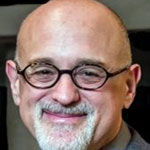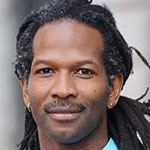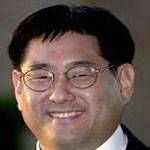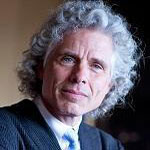Connect With These Top Psychology Professors on Twitter
From clinical psychology and neuropsychiatry to new avenues of psychology, including mindfulness and technology, psychology professors help shape the world we live in. This list of professors features inspiring thought-leaders who are preparing their students to enter the job market with a range of abilities, including how to conduct research, interpret data, gain insight into how memory and learning function, and manage problematic behaviors and situations while remaining resilient. Several of these professors specialize in innovative areas of psychology such as personality psychology, developmental psychopathology and cognitive neuroscience.
The professors listed here have appeared on national and international media outlets, including TED and the BBC, where their groundbreaking research and inquiries into the field of psychology are ushering society towards understanding how we have made it this far and where we can go from here. These professors have prolific knowledge in areas ranging from the study of emotions, suicide, and prejudice, to neuropathology, neuropsychopharmacology, and public policy, and all share their expertise on Twitter.

At the University of Mississippi, Dr. Michael Anestis is the Chair of Clinical Admissions within the Clinical Psychology department. He also serves as Associate Professor of Clinical Psychology and his research is focused on suicidal behavior, suicide risk factors, pain response and emotion dysregulation, and risk factors for non-suicidal self-injury. In fact, he directs the Suicide and Emotion Dysregulation Lab at the University of Mississippi and has published several articles in notable journals, including the Journal of Psychiatric Research and the American Journal of Public Health, related to his study of death, suicide and firearm legislation. His forthcoming book, Guns and Suicide: An American Epidemic (2018) “shifts the conversation about gun violence to suicides by guns,” a topic he also shares on Twitter....

Dr. Elliot Berkman is an Associate Professor at the University of Oregon, where his research interests are social/personality, social and affective neuroscience, translational neuroscience, self-regulation, goals, and motivation. Dr. Berkman also directs the Social & Affective Neuroscience Lab and is the Associate Director of the Center for Translational Neuroscience. He is the recipient of numerous awards for his teaching and research, and he tweets as the “psychologician.”

Dr. Deborah Bowman is a Professor and Dean of the Graduate School of Counseling and Psychology at Naropa University. Dr. Bowman is the author of The Female Buddha: Discovering the Heart of Liberation and Love, The Luminous Buddha: Images and Worlds, and co-authored When Your Spouse Comes Out. She also founded the Transpersonal Counseling Psychology and Wilderness Therapy programs at Naropa University, where she specializes in Gestalt Therapy, Jungian psychology, dreams and art, nonviolent communication and Transpersonal Counseling.

Dr. Adele Diamond serves as the Canada Research Chair Professor of Developmental Cognitive Neuroscience at the University of British Columbia. She has been recognized as one of the founders of Developmental Cognitive Neuroscience and as one of “the 15 most influential neuroscientists alive today” for her research on executive functions, cognitive flexibility, inhibitory control, selective attention and working memory. Dr. Diamond has been at the forefront of research on improving the lives of millions of children, and continuously asks the question, “What will our children need to succeed in the 21st century?”

At California State University, Los Angeles, Dr. Ramani Durvasula was named “Outstanding Professor of Psychology” within the College of Natural & Social Sciences. She is also the recipient of other scholarly awards for her work in women’s health, HIV/AIDS neuropsychiatry, sexuality, substance use, psychopathology, eating disorders, and health and ethnicity. Dr.Durvasula is the author of Should I Stay or Should I Go: Surviving a Relationship with a Narcissist and You are WHY You Eat: Change Your Food Attitude, Change Your Life, and she has appeared on various media networks, including National Geographic, Bravo, and the History Channel. She also serves on the Committee on Socieoeconomic Status and the Minority Fellowship Program at the American Psychological Association, and tweets as a “mental health media maven.”

Dr. Andy Field is known as the author of various statistics books, and is a Professor of Child Psychopathology at the University of Sussex in Brighton. He founded the Child Anxiety Theory and Treatment Lab (CATT Lab) in 2007 and was awarded a National Teaching Fellow in 2010, and he has received numerous research grants. Dr. Field’s research interests include environmental influences on fear and anxiety during early childhood, parenting, media, and temperament.

Dr. Daniel Gilbert is the Edgar Pierce Professor of Psychology at Harvard University, where he has served as a professor since 1996. Dr. Gilbert has given a number of honorary lectures, including the John Thibaut Award Lecture in 2017. His areas of expertise include social psychology, emotion, time, judgment and decision making, and social cognition. His TED talks and bestselling book, Stumbling on Happiness have earned Dr. Gilbert international notoriety. In 2014, Science named Dr. Gilbert as one of “the world’s most-followed scientists on social media,” and his Twitter posts reveal his interest in uncovering the everyday illusions that we all have constructed around us.

Dr. Adam Grant is a Professor of Psychology at the University of Pennsylvania, where he has been recognized as a top-rated instructor for five years in a row. Dr. Grant is an organizational psychologist who studies generosity, helpfulness, job design, meaningful work, leadership, culture, originality and non-conformity, work motivation and success. He has received various honors and awards, including best book awards for Give and Take, Originals, and Option B (co-authored with Sheryl Sandberg). Dr. Grant has also been featured on TED for his talks: “Are you a giver or a taker?” and “The surprising habits of original thinkers.” He often shares posts on Twitter about motivation at work and creativity.

Dr. Thomas Guskey is a Professor of Educational Psychology within the Department of Educational, School, and Counseling Psychology at the University of Kentucky. Dr. Guskey was the first Director of the Center for the Improvement of Teaching and Learning and was named a Fellow in the American Education Research Association, among many other honors. He is widely published and some of his recent books include, On Your Mark: Challenging the Conventions of Grading and Reporting and Reaching the Highest Standard in Professional Learning: Data. His areas of expertise—which he shares on Twitter—include policy, teacher education, assessment, educational reform and educational psychology.

Dr. Carl Hart is Columbia University’s Dirk Ziff Professor of Psychology (in Psychiatry). Dr. Hart also serves as the Chair for the department of Psychology, where is studies behavioral neuroscience, neuropsychopharmacology, psychoactive drugs and reforming public policy. His work has been widely published in The New York Times, the Washington Post and in Nature Human Behavior, to name a few. He is also the co-author ofDrugs, Society & Human Society, and the author of High Price, which received the PEN E.O. Award for literary science writing in 2014.

At New York University, Dr. John Jost is Professor of Psychology and Politics, where he also serves as the co-director of the Center for Social and Political Behavior. Dr. Jost’s research addresses political ideology, prejudice, stereotyping, and system justification theory. He is widely published, and he has received numerous honors, awards and grants, including “Champion of Psychology.” Currently, he serves as Series Editor of the Oxford University Press book series on Political Psychology.

Dr. Ellen Langer is the first woman professor to achieve tenure at Harvard University’s Psychology department. Dr. Langer’s area of expertise is in the illusion of control, mindfulness, mindlessness, health and wellness, and social cognition/decision-making. The Langer Mindfulness Institute was founded in her name and she is also the recipient of a Guggenheim Fellowship and many other prestigious awards. Some of Dr. Langer’s books include the best-selling, Mindfulness, On Becoming an Artist: Reinventing Yourself Through Mindful Creativity, and Counterclockwise: Mindful Health and the Power of Possibility.

Dr. Travis Langley is a professor of Psychology at Henderson State University in Arkansas, where he has been a faculty member since 1994. On Twitter, Dr. Langley is known as a “superherologist” for his fascination with analyzing superheroes, which has resulted in his authority on the psychology of renowned fictional characters. He is the author of several books, including Batman and Psychology: A Dark and Stormy Night, Doctor Who Psychology: A Madman with a Box, Star Trek Psychology: The Mental Frontier , and Wonder Woman Psychology: Lassoing the Truth.

Dr. David Matsumoto is Professor of Psychology at San Francisco State University, where he is an expert in microexpressions, nonverbal behavior, culture, emotion, and gesture. He is also the Founder and Director of the Emotion Research Laboratory, which specializes on social interaction, communication, culture, and emotion. In 2009, Dr. Matsumoto received the Minerva Grant from the U.S. Department of Defense, and he also serves as an editor for various academic/scientific journals, including the Journal of Cross-Cultural Psychology. Dr. Matsumoto is also the Director of Humintell, and the founder of the East Bay Judo Institute.

Dr. Elizabeth (Betsy) Levy Paluck serves as Professor of Psychology and Public Affairs in the Department of Psychology & Woodrow Wilson School at Princeton University. She is widely published in prestigious journals, such as Science and Psychological Science for her work on prejudice and social norms, stigmatized groups, conflict reduction, media effects, and diversity in education. Dr. Paluck tweets about social justice issues and how social norms shift in real world settings.

At Harvard University, Dr. Steven Pinker is a Johnstone Family Professor in the Department of Psychology, where he is known as an experimental psychologist who performs research on cognition, language, and human nature. Dr. Pinker has also been named as one of “The 100 Most Influential People in the World Today,” by Time magazine, among other honors, awards and distinctions for his groundbreaking work. Dr. Pinker is also the author of several books, including The Language Instinct, How the Mind Works, and The Sense of Style: The Thinking Person’s Guide to Writing in the 21st Century.

Dr. David Pizarro is an Associate Professor of Psychology at Cornell University, where he focuses his research on emotions, information processing, memory moral judgment, moral intuitions, and the effects of emotion on judgment. Dr. Pizarro’s work has been featured in The Guardian, and has been published by numerous academic and scientific journals, including the Journal of Experimental Psychology and Social Psychology and Personality Science. His TED talk, “The strange politics of disgust” has had over 600,000 views and his podcast, “Very Bad Wizards,” is a platform where he discusses human morality with the philosopher, Dr. Tamler Sommers.

At the University of Oregon, Dr. Sanjay Srivastava is an Associate Professor in the Department of Psychology, where he is also the Director of the Personality and Social Dynamics (PSD) Lab. His areas of expertise focus on interpersonal perception, personality development, the psychology of online societies, and how personality affects and is affected by social environments. His writings have been published by various noteworthy journals, including the Journal of Personality and Social Psychology and the Journal of Research in Personalit , and he shares posts on exploratory research/methods, social justice issues, and lifespan development on Twitter.

Dr. Philip Tetlock is the Lenore Annenberg University Professor in the Psychology department at the University of Pennsylvania. His areas of expertise include hypothetical societies and institutions about justice, political vs. politicized psychology, taboo cognition and sacred values, defining and assessing good judgment, and accountability and attributions of responsibility. Some of Dr. Tetlock’s books include Expert Political Judgment: How Good Is It? How Can We Know? and he co-authored Unmaking the West: What-if scenarios that rewrite world history, and Superforecasting: The Art and Science of Prediction.

Dr. Sherry Turkle is the Abby Rockefeller Mauzé Professor of the Social Studies of Science and Technology at MIT. She is also the founder and director of the MIT Initiative on Technology and Self, an initiative with a mission to draw more awareness around how technology has influenced what it means to be human. Dr. Turkle is widely published, and her 2015 book, Reclaiming Conversation: The Power of Talk in a Digital Age, was a New York Times bestseller. Professor Turkle has received numerous honors and awards, including the Kohl Education Prize, and has been featured as a commentator on the social and psychological effects of technology on various media networks, including CBS, the BBC, NPR, 20/20, and The Colbert Show.